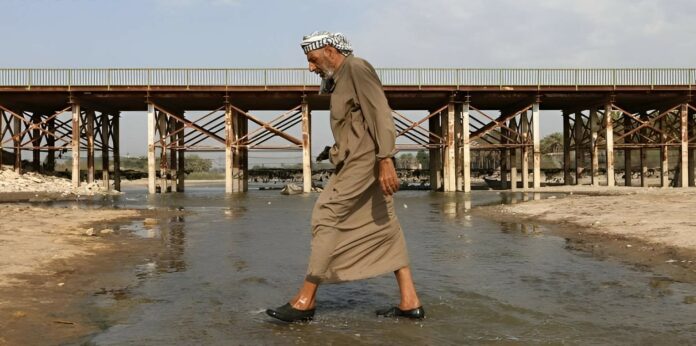Salam Jabbar Shehab – researcher
Executive summary:
The enormous complexities surrounding the water sector will lead to a significant decline and a major crisis in the water sector, and Iraq may find itself without rivers shortly.
Government plans, including those of ministries, may not be able to resist reaching the abyss in the water crisis; Due to indifference to managing this sector, the government’s response to the water crisis is modest due to its vulnerability and limited options.
The Iraqi government will not only need to reach an agreement with its powerful neighbors on water rights but to commit to a long process of key local, economic, and social policies, including water use and pricing.
Development in upstream States is not a pure disaster for downstream States. There is still an opportunity for cooperation that could make States better off and, as a result, provide some political bargaining with those States.
Alternatives that drive better water consumption policies are a fundamental priority to be worked on in the coming days, first of all, creating a price system for water and abandoning free and unofficial water consumption.
The revitalization of dams or aquariums may seem an undesirable idea for the time being, among other things: the conditions under which the dams were constructed will no longer exist.
Privatization and imposing duties on the water will drive the revival of lands far from rivers, reducing land prices close to the waterway.
Introduction
The water sector is an issue of concern in Iraq, where the equation of water supply and demand in Iraq interacts with many variables. Most notably, while Iraq enjoys two significant rivers, they form beyond borders; they are subject to regional and international considerations or tensions, including purely economic development in riverine “riparian” States. Water issues fall within those countries’ economic development agenda. It also exploits political and regional issues through which it exerts specific political, security, and even social pressures.
These interact with the internal conditions of water demand, including the impact of rivers in Iraq forming a border (98%) of a total domestic market for population and climatic conditions, as well as agriculture and waste of water in agricultural uses using primitive irrigation methods as well as massive climatic changes in the region, scarcity of rain and high temperatures, They are dangerous variables that require policies and strategies that drive to absorb the trauma of those elements in the coming years. without government action, Iraq’s inland freshwater resources could be less than (16%) In 2035, the country is entering a threshold or risk level, which will have adverse effects on growth and job creation. This tragic situation can be avoided if Iraq immediately adopts demand management policies, including introducing governance policies, the water quota system, and privatizing certain aspects of this sector.










